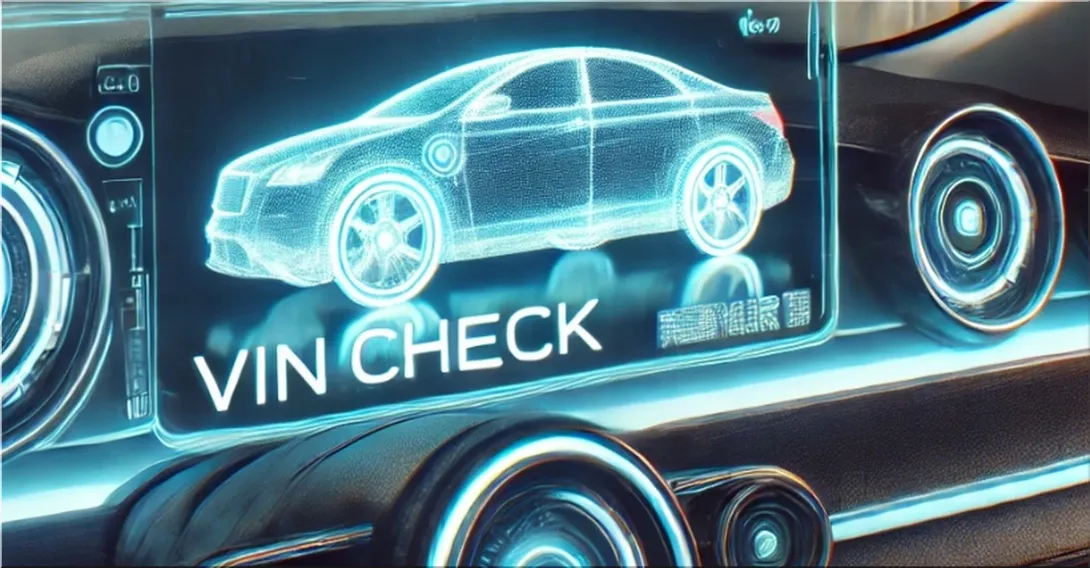Purchasing a used vehicle can be an excellent decision, but it’s not without risks. Ensuring the car’s history and condition aligns with your expectations is critical. A VIN check is one of the most effective tools to uncover vital information about a vehicle's past, protecting you from hidden issues and ensuring a safe and reliable purchase.
What is a VIN Check?
VIN stands for Vehicle Identification Number, a unique 17-character code assigned to every vehicle. This "fingerprint" of the car serves as a key to accessing its history. A VIN check involves using this code to retrieve a comprehensive report that reveals critical details, such as accident records, ownership history, title status, and more.
Why is a VIN Check Important?
Conducting a VIN check before finalizing a car purchase can save you from significant financial and emotional stress. Here’s why it’s essential:
- Accident History: Learn whether the vehicle was involved in collisions, the severity of the damage, and whether it has been adequately repaired.
- Ownership Records: Verify how many previous owners the car had and the nature of their usage—personal, commercial, or rental.
- Title Issues: Ensure the car has a clean title and is free from issues such as liens, salvage status, or theft records.
- Odometer Verification: Confirm accurate mileage readings to avoid odometer fraud.
- Open Recalls: Identify any unresolved recalls that might compromise the car’s safety.
How to Perform a VIN Check
Running a VIN check is straightforward and accessible. Here’s how you can do it:
- Locate the VIN, which is typically found on the driver’s side dashboard or door frame.
- Visit a trusted platform like CarfaxDoc and enter the VIN in the search field.
- Review the generated report, which compiles data from government records, insurance companies, and service providers.
Benefits of Using a VIN Check
There are numerous advantages to conducting a VIN check when buying a used car:
- Transparency: Gain insight into the vehicle’s background and identify potential red flags.
- Smart Investment: Ensure the car’s price aligns with its actual condition and history.
- Peace of Mind: Enter the purchase process with confidence, knowing you’ve done your homework.
- Negotiation Power: Use the report’s findings to negotiate a fair price with the seller.
Red Flags to Watch For in a VIN Report
A VIN check can reveal warning signs that may indicate the car isn’t a sound investment:
- Salvage or rebuilt titles, signaling the car was deemed a total loss by an insurance company.
- Reports of flood or fire damage, which can lead to long-term mechanical and electrical issues.
- Inconsistent odometer readings, which may point to tampering or fraud.
- Multiple ownership changes in a short period, potentially indicating recurring problems.
Why Choose CarfaxDoc for Your VIN Check?
CarfaxDoc offers reliable and detailed VIN checks that help you make informed decisions. With its easy-to-use platform and comprehensive reports, you can access all the crucial information about a vehicle’s past. Whether you’re buying from a dealership or a private seller, CarfaxDoc ensures you’re fully prepared.
Conclusion: Don’t Skip the VIN Check
A VIN check is more than a formality—it’s an essential step in ensuring your next car purchase is safe and reliable. By uncovering a vehicle’s history, you can avoid hidden pitfalls and invest in a car that meets your needs and expectations. Start your VIN check with CarfaxDoc to drive away with confidence, knowing you’ve made an informed and secure choice.
- Add new comment
- 36 views

